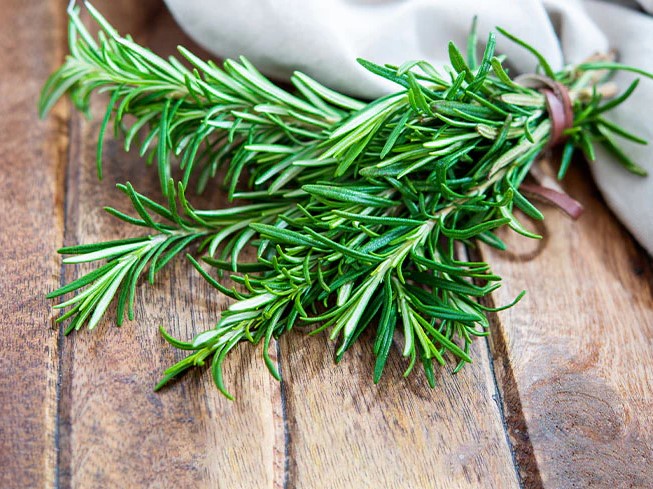Can Cats Eat Rosemary? Is Rosemary Safe for Cats?
Can Cats Eat Rosemary? In this article, we will explore whether cats can eat rosemary, the potential benefits and risks, and how to incorporate it safely into your pet’s diet or environment. Follow Cat Memorial Stones !!
What Is Rosemary?
Rosemary (Rosmarinus officinalis) is an aromatic herb commonly used in cooking for its unique flavor and fragrance. It is native to the Mediterranean region and is widely grown in gardens, pots, and even indoors. Known for its needle-like leaves and small blue flowers, rosemary contains essential oils like rosmarinic acid, camphor, and caffeic acid, which give it a strong scent.

Can Cats Eat Rosemary? Is Rosemary Safe for Cats?
The short answer is yes, rosemary is generally safe for cats in small amounts. According to the American Society for the Prevention of Cruelty to Animals (ASPCA), rosemary is not toxic to cats, dogs, or horses. This means that if your cat happens to nibble on a rosemary plant or a small amount of rosemary seasoning, it is unlikely to cause serious harm.
However, it’s important to remember that while rosemary isn’t toxic, moderation is key. Too much rosemary can cause mild gastrointestinal upset in cats, such as vomiting or diarrhea. The essential oils in rosemary can also be quite strong for a cat’s sensitive digestive system.
Rosemary benefits for cats
While rosemary is not a necessary part of a cat’s diet, it can offer a few potential benefits when used appropriately:
- Antioxidant Properties: Rosemary contains antioxidants, which can help combat oxidative stress in the body. Antioxidants play a role in neutralizing free radicals and promoting overall health.
- Natural Insect Repellent: The strong scent of rosemary can act as a natural insect repellent, potentially keeping fleas and other pests away from your cat. Some pet owners use diluted rosemary-infused water as a gentle rinse to help deter fleas.
- Digestive Support: In small quantities, rosemary can promote healthy digestion and soothe minor digestive issues. However, this should only be considered under veterinary guidance.
Risks of Feeding Rosemary to Cats
While rosemary is not toxic to cats, there are a few risks to be aware of:
- Essential Oils Sensitivity: Rosemary contains essential oils like camphor and rosmarinic acid, which can be irritating to a cat’s digestive system if consumed in large quantities. This can lead to symptoms like vomiting or diarrhea.
- Allergic Reactions: Just like humans, some cats may have an allergic reaction to certain plants, including rosemary. Signs of an allergic reaction can include skin irritation, excessive scratching, or sneezing. If you notice any of these symptoms, it’s best to remove rosemary from your cat’s environment.
- Choking Hazard: The needle-like leaves of rosemary can pose a choking hazard or cause irritation if swallowed in large pieces. It’s important to monitor your cat if they have access to a rosemary plant.

>>> Read: Can cats eat bananas?
How to Safely Introduce Rosemary to Your Cat
If you want to use rosemary as a natural remedy or enrichment for your cat, here are some guidelines to do so safely:
- Use Fresh or Dried Rosemary: If you choose to offer rosemary to your cat, use fresh or dried rosemary in very small amounts. Sprinkle a small pinch over their food or add it to a homemade cat treat recipe.
- Dilute Rosemary in Water: If you’re considering using rosemary as a flea repellent, dilute a few sprigs of rosemary in warm water, let it cool, and use it as a gentle rinse. Avoid using concentrated rosemary oil directly on your cat, as essential oils can be too potent.
- Supervise Your Cat: Always monitor your cat when introducing new plants or herbs to ensure they don’t experience any negative reactions.
When to Avoid Rosemary for Your Cat
There are some situations where it’s best to avoid rosemary altogether:
- If Your Cat Has a History of Digestive Issues: Cats with sensitive stomachs or a history of gastrointestinal problems may react poorly even to small amounts of rosemary.
- Pregnant or Nursing Cats: It’s generally safer to avoid any herbs that are not specifically recommended for pregnant or nursing cats. Consult with a veterinarian before introducing new herbs.
- Essential Oils Usage: Essential oils extracted from rosemary can be highly concentrated and should never be applied directly to a cat’s skin or ingested. Always opt for natural, unprocessed forms of rosemary and use them in moderation.
What to Do if Your Cat Eats Too Much Rosemary
If you suspect that your cat has ingested a large amount of rosemary, monitor them for any signs of distress such as vomiting, diarrhea, or changes in behavior. In most cases, minor digestive upset will resolve on its own. However, if symptoms persist or worsen, contact your veterinarian for advice.
Is rosemary oil safe for cats?
No, rosemary oil is not safe for cats. While rosemary itself is generally considered non-toxic to cats, the concentrated form found in essential oils can be harmful. Rosemary oil can cause seizures, tremors, and other neurological issues in cats.
If you’re looking for natural ways to freshen your home or repel pests, consider using safer alternatives like baking soda, vinegar, or citrus peels.

Alternatives to Rosemary for Cats
If you are looking for safe herbs and plants to enrich your cat’s environment, consider these alternatives:
- Catnip: A classic favorite among cats, catnip can stimulate playfulness and improve their mood.
- Cat Grass: Cat grass is a safe option that many cats enjoy chewing on and can help with digestion.
- Valerian Root: Valerian root can have a calming effect on some cats and may be a suitable alternative to rosemary.
Conclusion: Can Cats Eat Rosemary?
In conclusion, cats can eat rosemary in small quantities, but it is not a necessary part of their diet. While it offers some potential benefits such as antioxidant properties and natural insect repellent capabilities, it should always be used in moderation. Always consult with your veterinarian before introducing new herbs to your cat’s diet, especially if they have any pre-existing health conditions. Remember, the health and safety of your pet should always come first.
By understanding the potential benefits and risks of rosemary for cats, you can make an informed decision on whether to include this aromatic herb in your feline friend’s life. Happy pet parenting!
>>> Click Can cats eat basil?
